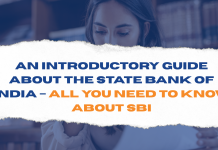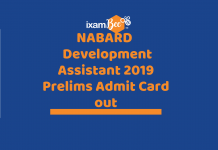IBPS AFO 2024
IBPS has been one of the top recruiting organizations in India, that gives a golden opportunity to all the qualified and eligible youngsters seeking an entry into the much sought-after government sector. IBPS offers not one, but many opportunities by releasing vacancies in various kinds of job positions, e.g IBPS PO, IBPS Clerk, IBPS RRB PO, IBPS RRB Clerk and IBPS SO. IBPS SO pertains to ‘Specialist Officer’ which recruits eligible candidates under various technical fields. IBPS AFO is one such important job position under IBPS SO. AFO refers to Agriculture Field Officer.

The examination for IBPS AFO is held in three phases: Prelims exam, Main exam and Personal Interview.
The IBPS AFO Preliminary Exam Pattern:
The expected Prelims exam pattern for IBPS AFO exam are given as follows:
| S.No | Test | Questions | Marks | Duration |
| 1. | Reasoning | 50 | 50 | |
| 2. | Quantitative Aptitude | 50 | 50 | |
| 3. | English Language | 50 | 25 | |
| Total | 150 | 125 | 2 hours |
The IBPS AFO Mains Exam 2024 will consist of one test of Professional Knowledge of 60 marks having 60 questions with a time duration of 45 minutes.
Reasoning is one of the most important sections in the IBPS AFO Exam which tests the reasoning skills of the candidates, through various kinds of topics that will be specified in the official notification of IBPS AFO Exam 2024. Candidates face many hurdles while attempting the Reasoning section of IBPS AFO. Though, it is all in the mind!! As far as Reasoning section is concerned it is actually in the mind! This section tests your analytical and reasoning skills. Before discussing about IBPS AFO Reasoning in detail, it is advised to get a hold on IBPS AFO reasoning syllabus :
IBPS AFO Reasoning

Reasoning majorly is a combination of LOGIC and APTITUDE.
Logic is a particular way of thinking, based on reasoning and good judgement and understanding. It may have its own varied levels and tendencies, depending on each individual, but it does exist in everyone. We just need to sharpen our ability of judgement, through practice.
APTITUDE on the other hand is more of a natural tendency that is there in an individual and this is what the section examines.
Therefore, you need to sharpen your logic taking help of your natural ability or quality. So, it seems an easy goal to achieve. To start- we need to know the syllabus, so that we should know on what parameters we need to work and enhance our abilities.
- SYLLOGISM – It is a kind of logical argument that involves analysing the statements and picking the correct conclusion/s that follow/s, assuming all the propositions to be true. It involves the art of figuring out the most possibilities according to the statements given and eliminating the ones which do not concur with the facts as presented in the questions.
- CODED INEQUALITIES – This is another most common type asked in almost all of the banking exams, which again tests your analysing skills and speed. It all depends on your observations skills and how fast can you read, analyse and retain in your mind and act as swiftly as you can.
You need to read the codes and retain them, and analyse which of the conclusions follows accordingly.
- PUZZLE – This is the most feared and ‘puzzling’ of them all, but if practiced with interest, it might turn out to be one of the easiest and interesting nut to crack!

– SEATING ARRANGEMENT: The trick here is, to know how to solve a puzzle in as less time as possible, without making things too complicated. The moment you learn to utilize the least space and still solve a puzzle, in less time, without making a confused picture, is when you will be successful in making the most out of your time.
– CIRCULAR ARRANGEMENTS, LINEAR ARRANGEMENTS, SQUARE ARRANGEMENTS, FLOOR ARRANGEMENTS, BOX PUZZLES, DIRECTION-BASED PUZZLES are some common types asked these days.
- INPUT – OUTPUT – This is another type that tests your analysing skills moving a step ahead. You need to recognise the pattern and likewise solve the arrangement given in the question. SO, in a way, it takes more time comparatively, as you first need to solve the pattern given and then solve the one given in the question accordingly.
- BLOOD RELATION – As the name suggests, these type of questions expect you to find out the relation between the persons given in the respective questions. This type tests your cognitive ability.
It checks your analysing speed and clarity. You are expected to deduce the relation between any two people in the least time possible in the exam scenario, which means, irrespective of the simplicity of the kind of questions, the way of asking them combined with the exam pressure makes them complex. They can be asked in many ways, e.g. mixed relations, coded relations, puzzle form etc.
- DATA SUFFICIENCY – Based on a particular detail, these questions also require you to be more swift and quick in answering as you need to be able to come to a decision as soon as possible, looking at the question at once, at best. You are required to decide if the data provided in the question is sufficient to answer the question and choose the answer options accordingly.
The thing that will make you stand out among the rest will be your ability to answer the questions in shortest time possible, without even solving the question, and that will come through thorough practice.
- ORDER AND RANKING – This is one simple type, where you can score full marks if you practice a little, so that you come to know ‘how to’ go about the question in the first place and do not waste your precious time. This is a simpler one, as it doesn’t have a lot of information to puzzle you with.
- ALPHA NUMERIC NUMBER SERIES – Here, you will be given a mixed series of numbers, symbols and alphabets, based on a particular pattern and you will be asked various questions on the given series. It proves to be a scoring type where you do not have to waste any time in solving or coming to a conclusion. You just need to rearrange the series accordingly and answer the questions that follow.
- LOGICAL REASONING – As you can make out from the title, such type of questions test your instant reasoning skills, testing your ability to apply a logic. These can be asked in different ways, e.g.-
- STATEMENT AND ASSUMPTIONS – You will be given statements and you will have to decide which of the assumptions follow, according to the information given.
- CAUSE AND EFFECT – You are given a particular information, where accordingly you need to choose the answer options, that which of the given statements is/ are a cause / effect of the other statement given.
- COURSE OF ACTION – You need to decide which of the given course of action is suitable according to the problem in question.
- STRONG / WEAK ARGUMENTS – You need to infer which of the given arguments either strengthens / weakens the given statement.
- CODING – DECODING – Here, you are provided with a pattern of codes with different English words arranged in random order. You need to break the coding pattern and find out the codes according to the questions.
REASONING is a subject where you can improve with practice and score better. For IBPS AFO reasoning questions, practice free mock tests for IBPS AFO.
ALL THAT IS NEEDED IS YOUR ANALYSIS, SPEED AND OBSERVATION AND THE SKILL OF ELIMINATING THE WRONG CHOICES AND RECOGNISING THE TYPES YOU ARE MOST COMFORTABLE WITH.
Get Free Online Test Series, GK updates in form of Beepedia, BeeBooster, as well as latest updates for Bank PO, Bank Clerk, SSC, RBI, NABARD and Other Government Jobs.
Also Read:
IBPS AFO: Top 3 Targets to Crack Exam in Just 3 Months
IBPS AFO changing exam pattern preparation strategy
мой займполучить займ на карту911 займ







![List of Folk Dances from Indian States [Updated]](/blog/wp-content/uploads/2020/04/Purple-and-Black-Simple-Technology-Keynote-Presentation-1-100x70.png)





